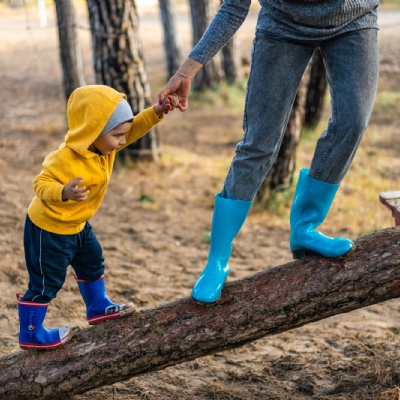Home Schooling – Natural Schooling

Learning with, through and about the natural world.
With his passion for nature and wildlife, David Attenborough is a hero of the young and old alike as he has kindled a love and respect for the natural world rarely seen before. Now, with unforeseen time on your hands and the children at home, there is an opportunity to acknowledge all the good work in promoting this respect and understanding and to capitalise on the benefits of learning with, through and about the natural world.
There is compelling research that tells us that connecting with nature has multiple benefits for learning and wellbeing, and so now with an unrestricted free and natural classroom outside your windows or beyond your doors at home, this is really the time to take advantage of natural schooling. With springtime already here, and the weather starting to warm up, whether you are confined to a building or have the freedom to get outside into the garden, this is a time to start ‘noticing’ what is going on around you – the greening of the trees, insects visiting the opening blossom, colourful butterflies or tadpoles emerging, the voices of fledging birds. It is hoped that the tips and ideas here can spark your imagination, and support how you can use your ‘noticing’ of the nature and wildlife around your homes and turn them into meaningful learning opportunities.
Natural schooling seeks to inspire a sense of awe and wonder about our beautiful world, and so in the current time fostering a love and appreciation of even the tiniest things that collectively make our planet great is vital. Natural schooling is based on a premise for children and young people to achieve a healthy and happy body and mind; and become: a sociable and confident person; a self-directed and creative learner; an effective contributor; and an active global citizen. These are the [i]outcomes needed for 21st Century Learners, and there is no time like the present to start fostering these aspirations for a better world.
Pedagogically natural schooling advocates a student centred learning experience that is inspired by curiosity and enacted through enquiry. The natural world becomes the media for the learning. In other words it encourages educators and the learners themselves to use the natural world to apply the curriculum. It is important to recognise that our natural world includes the tiniest of plants and animals that we would not usually ‘notice’. It includes the weather and climate and the landscapes around us. All of these are observable, even from the windows of a block of flats, so everyone can participate in some way.
With some collaborative thinking with your children you should be able to identify your own creative ways to develop your own Home Schooling - Natural Schooling programme that supports the existing Government curriculum requirements. Here are just a few examples to get you thinking:
To support Maths:
- Observe then group/count plant and animal shapes or record species
- Keep a record of insect activity over periods of time (an hour, day, week) and use this to look at behaviour patterns
To support English and Literacy:
- Create diaries, poems, blogs and other writing about the wildlife
To support Musical Understanding/Creative Arts:
- Learn to identify different bird song/rhythms
- Paint, draw, and/or photograph the ever changing environment around you as springtime unfolds
To support Science and Geography:
- Weather watch
- Understand water, soils and the role of rocks
- Photosynthesis
- Species recognition
- Ecosystems
To support History:
- Darwin evolution theories
- How wildlife and nature charities and organisations have come into being
To support Physical Health and General Wellbeing:
- Get outdoors and exercise if you can
- If confined indoors and it is safe to do so open the windows and breathe the fresh air whilst doing yoga activities
Below are some suggested themes for study – some which will enable practical (tangible and experiential) learning opportunities and others that will require research:
Practical: Growing and caring for plants
Practical: Identifying and encouraging wildlife
Practical and Research: Protecting natural environments
Research: Considering how and why our wildlife and habitats vary from place to place
Research: Exploring volunteering and careers in wildlife and conservation
There are multiple organisations who for years have been advocating the natural world for learning and so visiting their websites for inspiring and practical ideas is highly recommended. Here are a just few of them to get you started. Note that many of them will signpost you to other organisations with practical tips for supporting learning and also to research that proves that learning with, through and about the natural world really has benefits:
The Royal Society for the Protection of Birds
Council for Learning Outside the Classroom
Institute for Outdoor Learning
Forest School Association | What is Forest School? | Forest Schools | Nature Premium
National Curriculum Outdoors website
We hope this goes a little way to inspiring you and helps to make the time ahead of us meaningful for all.
[i] Malone, K. and Waite, S. (2016) Student Outcomes and Natural Schooling. Plymouth: Plymouth University. Available at: http://www.plymouth.ac.uk/research/oelres-net (Accessed: 23 March 2020)

Leave a comment